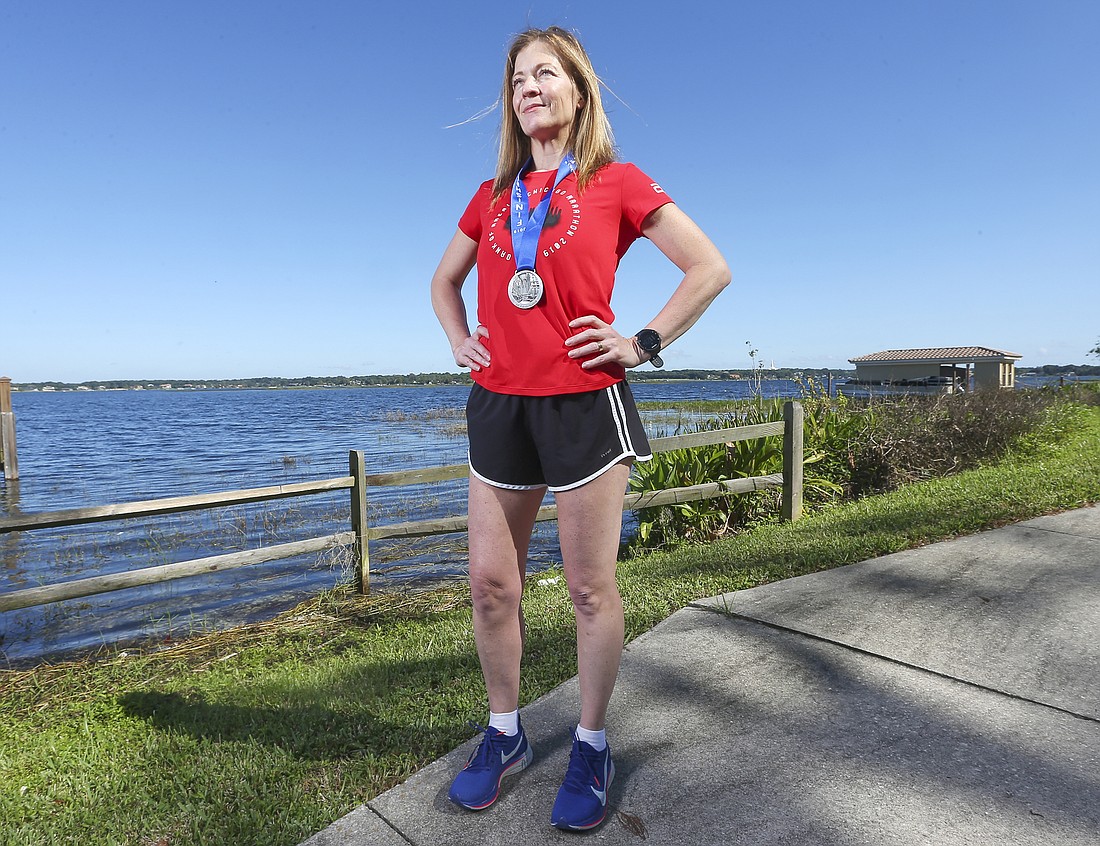- January 8, 2025
-
-
Loading

Loading

Kelley Duell shouldn’t be here.
Yet, despite the cards she had been dealt, she paced the streets of Chicago running beside thousands of others in the Chicago Marathon on a cold morning in the Windy City.
For the first leg of the race she was worried — Am I going to finish? Am I going to ‘hit the wall?’ But she never hit the proverbial “runner’s wall,” and after mile 20, she knew that she would make it — scarred and partially collapsed lung be damned.
The final fifth of a mile was grueling, but when she heard the chorus of cheers from the crowd and the sounds of the PA announcer, she knew she had made it. As she crossed the finish line, she fell into her friend’s arms and began sobbing in a moment that was bigger than the race itself.
“Time stands still,” Duell said. “When you have given every ounce of energy, every ounce of emotion and everything that you have in the tank, when you cross that finish line, time stands still. You remember who is around you, what they were wearing, what they said … they’re like your family.
“It’s such a victory, and it’s a feeling of accomplishment and a feeling of success, combined with absolute exhaustion,” she said. “To explain it is to not do it justice.”
That day — Friday, Oct. 13 — was one that the Windermere resident won’t forget, because that was the day she conquered a run that seemed impossible almost six months earlier after a near-fatal case of empyema and pleural effusion left her hospitalized.
On Feb. 24, Duell competed in the Gasparilla Half Marathon in Tampa. Generally, things seemed to go well.
She finished second in her age group, but something felt wrong — even after the race when she was training with friends. Duell simply thought it was just the running she was doing to prepare for the London Marathon.
“When you’re in training mode you have a level of fatigue — you have aches and pains,” Duell said. “I was training extra hard because I wanted to do a good job in London, so it was hard for me to recognize the level of illness that I had.”
During a training session with a group of friends, however, one of them noticed how raspy Duell’s breathing had become and asked her to go to the doctor. Duell did not heed the advice, and by the middle of March, things had gotten worse.
Duell began coughing up blood sporadically and decided to see a doctor. His prognosis? Allergies. But, as Duell learned just a few days later after waking up one morning and falling to the floor, it was something much worse.
After being taken to the hospital via ambulance, Duell learned she had pneumonia, and that’s when it snowballed.
“I went from having pneumonia to — 36 hours later — my left lung was completely whited out, so I was what they call ‘dry drowning,’” Duell said. “I had a pleural effusion on my left lung that was pushing my heart over into the right-hand side of my chest and cutting off my trachea. A lot of fluid built up in my lung, so I then became an emergency situation and had to be transported over to ORMC.”
As soon as she arrived to ORMC, doctors performed an emergency chest tube — placing in a tube through her side to remove the fluid and infection in her lung.
The procedure was done while she was awake, and it was the most painful thing she had ever experienced, Duell said. But that wasn’t the end of her tribulations at the hospital.
The pneumonia led to a disease known as empyema, which required video-assisted thoracoscopic surgery that could be done only after removing the fluid from her lung.
“My lung was covered in abscesses, and what it does is it basically squeezes your lung like a paper bag — it crumples it up,” Duell said. “So the surgery that I had the next day was for the empyema — they had to remove all the abscesses off of my lung.”
Even with the abscesses removed, there was still scarring on her lung, which made it painful for Duell to breathe — something that still affects her to this day.
Duell had been through so much, but fewer things were more brutal than what the doctors told her about the sport she loved.
“I asked every time I went back to a checkup, ‘Can I start running?’ And he told me, ‘Obviously you’re not going to take no for an answer, but I can tell you, don’t expect much,’” Duell said. “I just refused to take that as my outcome — I just refused.”
She started slow, but as the days and weeks passed she progressed — eventually building up the stamina she needed to dominate at the Chicago Marathon. She ran the 26.2 miles in 3:41:29 — the fastest time she had ever run a marathon.
Although the pain and shortness of breath still remain from those life-changing nine days, Duell still continues to run as she prepares for the Boston and New York City marathons in 2020.
Duell already knows the training will be made even more difficult now given the physical toll her body has dealt with, but the pain she feels can be overcome, she said.
“If you can get past that physical exertion and physical pain that you feel, it gives you that energy,” Duell said. “It’s you and the road, and it gives you the feedback that you are alive.”